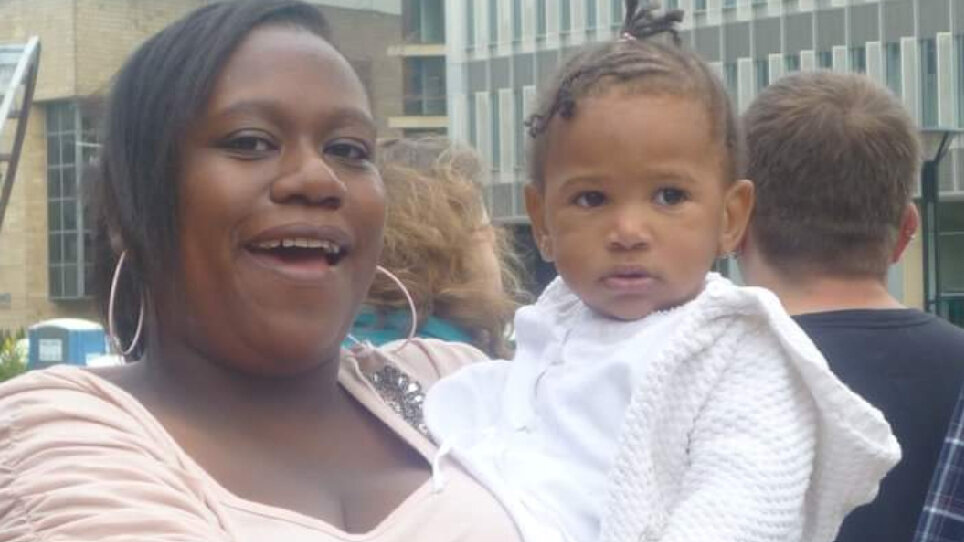Melissa's story
Melissa, 43, was diagnosed at the age of 35. In her full interview, below, Melissa describes her love of the Marvel Cinematic Universe. She also explains the difficulties of growing up undiagnosed, the joy of her diagnosis and being visible as a Black autistic woman.
A big thank you to Curzon Cinemas for allowing us to use their space for the shoot.
My story
I chose to be photographed at the cinema because the thing that makes me happiest is watching Marvel Cinematic Universe. There is just something about that world. I'm fully immersed in it and I'm fully invested in it. And watching the evolution of the movies, it brings me a lot of joy. It's something I totally and utterly love to do. The films mean so much to me because it's a world where nobody fits in and everybody is trying to find their way and makes mistakes, and everybody's on an individual journey to greatness.
There's something about the flaws in the characters and how they're striving to do and be better that really resonates with me as an autistic woman. I often feel confused in this world. There are a lot of things that don't make sense. But my intentions are good and I'm really happy and excited about my journey and the journey with my family. And it's nothing to do with ‘autism being a superhero power’ or something like that. It's just the flaws of the characters and how much they're striving to do and be better. It just makes sense to me.

"I was diagnosed at 35. So, for 35 years, I’d been pretending to cope in a world that wasn't designed for people like me."
Realising I was autistic, I felt, at first, very sad. Because I was diagnosed at 35. So, for 35 years, I’d been pretending to cope in a world that wasn't designed for people like me. It had a really, really negative effect on my health. So, initially, I felt very sad. But the more I learn about myself and about autism, the happier and more liberated and free I feel. I'm now finally starting to give myself permission to really struggle with the things I'm struggling with and not pretend that I'm coping. But it also gives me permission to show joy when I find something joyous that might not make sense to somebody else. Something as simple as looking at cranes brings me a lot of joy. I can't explain it, but I now acknowledge it.

"The more I learn about myself and about autism, the happier and more liberated and free I feel."
If I could say anything to my younger self – who didn't realise I was autistic – it would be: ‘It's okay to feel scared. It's understandable that you feel confused.’ I felt incredibly confused and alone as a child, even when I was in a room full of family. I felt different and I felt there was something wrong with me. And obviously there isn't. But because I didn't know I was autistic, I felt like I was wrong and I didn't fit in. That's a horrible feeling to have for 30-plus years. I had that feeling and I pretended, you know, I ‘masked’. So, I would tell my younger self: ‘It's okay. It's okay to feel scared. It's okay to feel confused. It's okay to feel alone. This will all eventually make sense.’
"It's really important that more people understand autism in women because we're out there. We are autistic and a lot of us just aren't diagnosed."
It's really important that more people understand autism in women because we're out there. We are autistic and a lot of us just aren't diagnosed. I think the more we understand autism – the more we understand how it presents in women, about the adjustments that need to go into society for people who are autistic, to help them to be able to cope in this world – the better our society will be.
There are women out there really struggling. People who identify as women, as well, who are really struggling. And the more we understand that and the more we can support them, the happier that cohort will be.
"It was really important for me to be a part of this so people understand that Black women are autistic as well."
I wanted to take part in this campaign because we typically don't see Black women in campaigns like this. It was really important for me to be a part of this so people understand that Black women are autistic as well. I am doing this and being vulnerable and putting my face out there in the hope that it will help other women of colour to acknowledge that they're autistic and share that information. The more we share that information, the more we can normalise autism.

